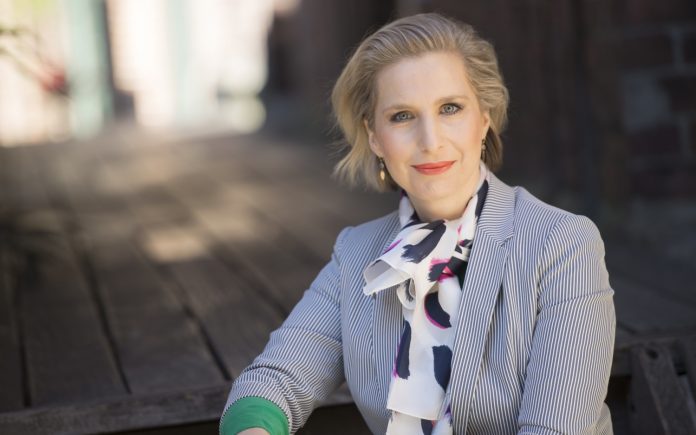When we think of the word ‘resilience’ it conjures up certain meanings, i.e. that no matter what is thrown at you, you can ‘handle it’. That you are tough enough to take it all on, and carry on. Increasingly there are moves to train our doctors to be more ‘resilient’ to life, but is this really what is needed?
Burnout rates in the profession are utterly staggering. Over half of the medical profession. That is correct, over half of the medical profession are burnt out. 25% of the profession have thought of killing themselves at any one point in life. That’s right. A quarter of health care professionals, those trained to be our experts in health care have found life so miserable that their only way out has been to contemplate suicide.
Our suicide rates are far higher than any other section of society, the irony not being lost here as we are health care professionals.
The levels of bullying and harassment in our profession are rife, and increasingly doctors are beginning to speak up about the stresses and strains that they are under, and in the UK in particular, they are walking off the job to move to other countries where they feel more valued.
It is clear that as a profession our health and well-being is suffering. But is aiming for increased ‘resilience’ really the answer?
The sort of people who do medical school are by nature pretty ‘resilient’. They push themselves, deny themselves all sorts of things, in order to not only get the marks required for medical school but increasingly the vast array of extra-curricular activities that are required to demonstrate and prove that one is a suitably exceptional candidate.
Circumstances in medicine are certainly arduous… long hours of work, study for years on end, seeing people at their worst, a well established culture of bullying and harassment… Nobody ‘survives’ unless they have a degree of ‘resilience’ to human suffering, both their own, and others.
As doctors, we care deeply about people and innately and through our programming in medical school we want to take away human suffering. We see it as being a bad thing. Yet we quickly realise that the time that we have and the tools that we have in our medical armamentarium are not sufficient, and are woefully inadequate in comparison to the immensity of the human suffering that we are confronted with.
There is much to process in day to day life, in conjunction with the multitude of pressures, to do with time management, clinic hours, paperwork, and on top of that our life and family demands.
Many of us burn out and there are many things that people are pointing the finger to that are causing burnout.
Some people say it’s long hours, but it’s clearly not that, as many people work long hours with no burnout. There are clearly other factors at play and we are certainly affected by and react to the toxicity of the environments that we find ourselves in.
But is ‘resilience’ really what we need and what we truly want our doctor to be?
If the environment that doctors are in is abusive and causing harm, then why would we want them to be more ‘resilient’ to these abuses? To accept them and to toughen up to them?
If there are things that are causing emotional pain, distress and a protective shut down in order to ‘get on with the job’ then why would we want them to be ‘resilient’ to that?
Why would we not want our doctors to be sensitive, to have feelings and the time and the space to process them?
Why would we not want to address the abusive factors in the system that are harming and placing stress and strain on doctors?
Why do we want our doctors to be ‘resilient’ to and put up with a complaints and regulation system that holds them as having less human rights than average people in the community?
Asking or demanding our doctors to be ‘more resilient’ is about asking them to to carry on, to be just ‘a bit better’. To be ‘OK’, but not fantastic. To be less of a ‘statistic’, but not amazing. It asks them to ‘make it through no matter what’, to put up with it all as it is, and keep coming back for more.
Resilience is not about true health and well-being. It is about survival.
Yes there are issues in our profession. We are seriously not well, and our profession is having its own health crisis. However, making our doctors ‘resilient’ to ‘cope better’ is only a postage stamp solution that will only have a short term duration, just like the administration of amphetamines to soldiers on the battlefield to get them through the battle without care of the fall out, and PTSD afterwards…
We have a responsibility in health care to provide a caring service to those that seek it, and to equally care for those who are providing the care in health care.
Aiming to make doctors ‘resilient’ abrogates responsibility that any of us have for the culture of health care and the systems of health care.
It places the blame firmly at the feet of doctors for ‘not being able to cope’. For being ‘the wrong sort of person’ who has ‘stars in their eyes as to what it is all about’.
Instead of directing the focus on making our students and doctors ‘resilient’, what if we instead spent time nurturing their sensitivity and their care?
Sensitivity is the key to our well-being.
Sensitivity allows a person to know when they are affected by something and thus allows them the space and the grace to seek support to heal if they need it.
It is our sensitivity that allows us to know when there is something wrong in the system and to take steps to address it.
It is our sensitivity that allows us to be aware of and take a greater attention to the details of our own lives, and the lives of our patients.
Sensitivity allows a person to learn not to absorb or react to the enormity of the sufferings that they are seeing
Sensitivity means that a person learns to recognise abuse and to take steps to end it and to support others who find themselves in abusive circumstances. This is valuable and needed in developing a more caring society.
Sensitivity allows a person to develop heart felt caring relationships with one another and this is exactly what is needed in medicine, and life!
Our sensitivity allows us to be sensitive and caring with another person, qualities that are needed in health care.
Sensitivity allows us to listen, to understand, to nurture and deeply care for each other as first it allows us to do that for ourselves.
When we deeply care for ourselves, we take the steps to true well-being and a true care for ourselves, and others. And this is ever unfolding.
Instead, aiming to be ‘resilient’ caps us as a profession. It keeps us short term foot soldiers, always on the fight, managing and concealing our ‘stress’ until we crack at a later date. It does not equip us with the true enduring tools that we need to be truly successful, well and healthy physicians in all areas of life.
Sensitivity delivers us to our true care.
Honouring our sensitivity leads us to the true care that we all are and are able to provide, and takes us to the pathway of true well-being. It is through honouring our innate sensitivity and care that our profession and system can and will transform to better support us all.
This article was first published on Dr Maxine Speaks










Yes, it is all about bringing the “heart” into our medical and education systems.
Indeed, more enduring tools are needed than just managing the current situation in the care systems. It is pure survival now with regular ‘drop outs’ whether with explosions – verbal fights, outbursts and bullying – or implosions – burnouts, becoming numb or purely functional. This is the ‘normal’. It starts with honouring our sensitivity and acknowledge to ourselves what we feel and allow ourselves to say ‘stop, I care…for me.’
Great to hear/read this article as I totally relate.
Yes when I first heard the word ‘resilience’ I felt it saying – ‘toughen up and shut up’, another solution to keep a show running that is not supportive or conducive to healing and medicine. I have found myself wanting to leave health care at times because of the lack of care and sensitivity – so great to read this and confirm and rekindle what I came to health care for .. the sensitive care I have for people, including myself.
Beautiful, Amber… yes, we need to support each other to treat ourselves and others with deep care…and bring the care back into the health care system…
Slowly but surely this will happen
Being deeply cared for feels amazing and knowing that ability is accessible for all of us if we choose to deeply self care